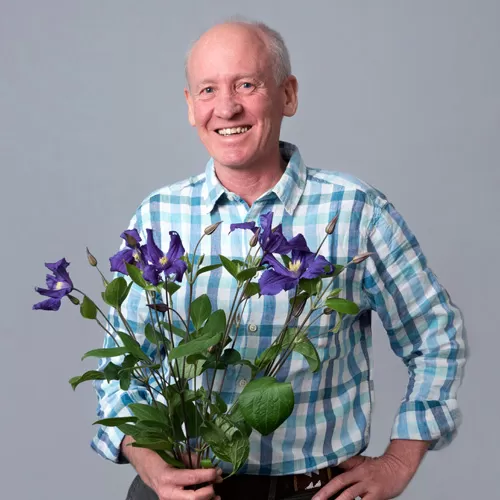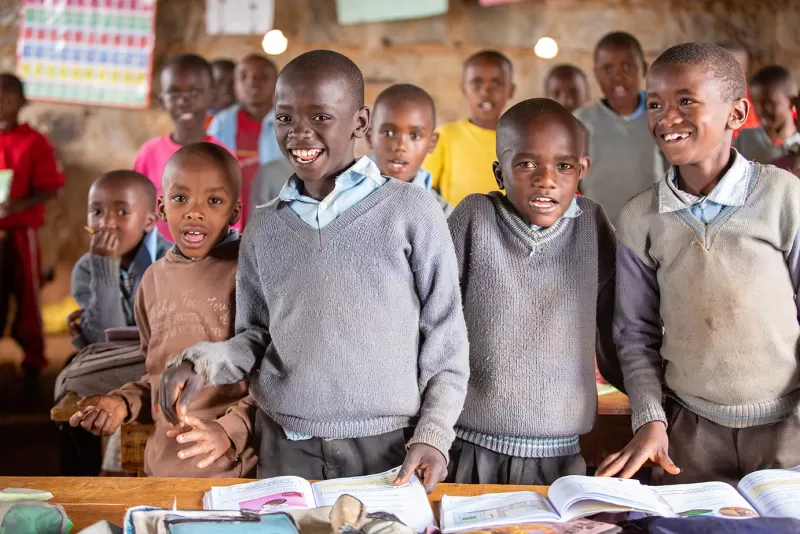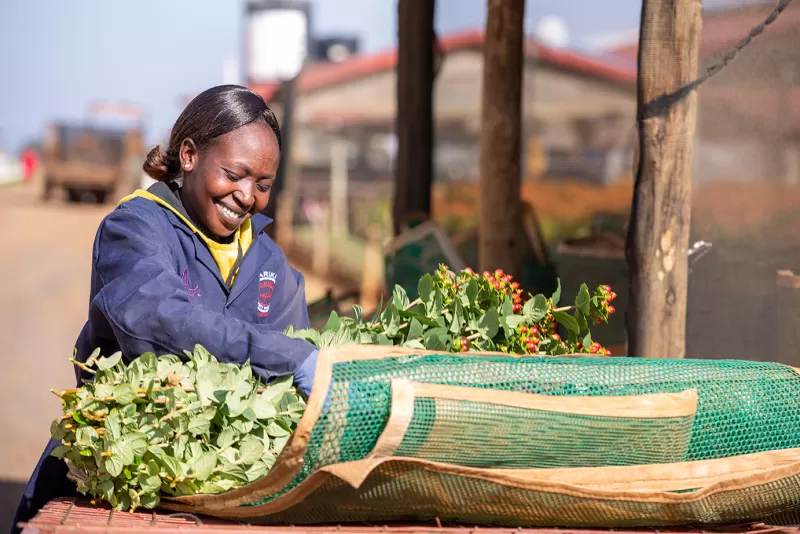
The Kaizen way
Our farms in Kenya work 'Kaizen'. A Japanese method of working in which trust is a key element.
Back to storiesichard (Kiki) Fernandes, Co-founder and Director External Affairs of the Marginpar group explains why this matters to us so much. I was born in Kenya; as were my parents and my wife - so I am a real Kenyan. You could say that farming is in our blood. My father began by farming sheep and cattle. In 1992 we bought a piece of land and started to grow vegetables to export them to the UK and Europe. Together, we gradually grew the business and then sold it to a larger company in 2001; for my father this was the perfect time to retire.

I knew that margins on vegetables were low. You have to produce very high volumes in order to gain a reasonable profit. I therefore decided to take a risk and grow flowers. Flowers have a higher value and I already had some experience in horticulture, since my father and I had dedicated a small corner on our farm to growing flowers. I started the first farm in Nanyuki, around 200 kilometres north of Nairobi. My brother Andrew joined me a few years later. We started working with Marginpar, because of their strong alliances with breeders and unique products.
Growing people
In 2012, we implemented a Japanese method of working, called “Kaizen”, or what we refer to as Hamuka. It’s a question of culture and organisation in which trust is a key element. Moving away from the traditional ‘top down’ approach, it’s not about the management and those individuals in positions of power pushing things to get done, while the employees beneath them don’t understand what’s happening and why. It’s about an organisation that values people. Look, most people come to do a good day of honest work. That’s why you have to ask yourself why things go wrong. It’s not about who is the problem, but what is the problem. It’s a question of trust. Trust is so important. Thanks to this attitude people can grow.
Growing flowers
Our motto is "We grow people, our people grow flowers". That’s what’s really important. Trusting, valuing and empowering people. A lot of our staff, or value adders as we call them, have grown thanks to this way of thinking. They started with a red cap, as non-skilled workers, and are now our managers. Take Miriam for example. She started as a junior and is now a Farm Manager at our Kariki Juja farm. The same goes for Adan, our Hamuka Coordinator. Although he couldn’t go to high school, he has grown into his role and has become an excellent coordinator.
Happy people
Kaizen - Hamuka not only grows people. We have increased our performance and production per m2 and we have increased our turnover. That’s where the benefits are coming from. In the meantime, our people are happy. We look after them. We want to have a decent working environment for them: clean and effective. As Kaizen says: a place for everything and everything in its place. We’re a very open company in terms of financial and strategic information. We try to share where we are now and where we are going with the different teams involved. Everyone knows about our company’s targets and everybody knows their own personal target.
It's all about relationships
With Kaizen, we were able to almost double our production between. We achieved this with the same number of employees and we did it without expanding our m2. We use only what we need, meaning we have practically no inventory. We turn our inventory over 52 times in a year, meaning that we hold only one week's inventory in our stores. To achieve this we must have a good relationship with our suppliers, so we invest in this. That’s also something I’ve learned from Kaizen: business is about partnerships, it’s all about relationships. Look after your people and they will look after your customers. Your people are number one.
”Very few companies realise how important the culture of your business is.
We have a social responsibility
We have an impact on our employees but also on our environment and the communities in which we operate; we have a corporate social responsibility. We’ve helped build several schools and additional classrooms. We support children going to high school. We support the physically handicapped. We partner with the government concerning security issues like burglary and carjacking. We try to improve the roads.


We know there are issues with clean drinking water, so every employee on the farms is allowed to take five litres of clean water home each day. We have a nurse and a medical team on each farm. We also provide soap and other essentials to day care centres. We acknowledge that problems in the community have an impact on the employees and their production, so we want them to know that they can turn to us.



